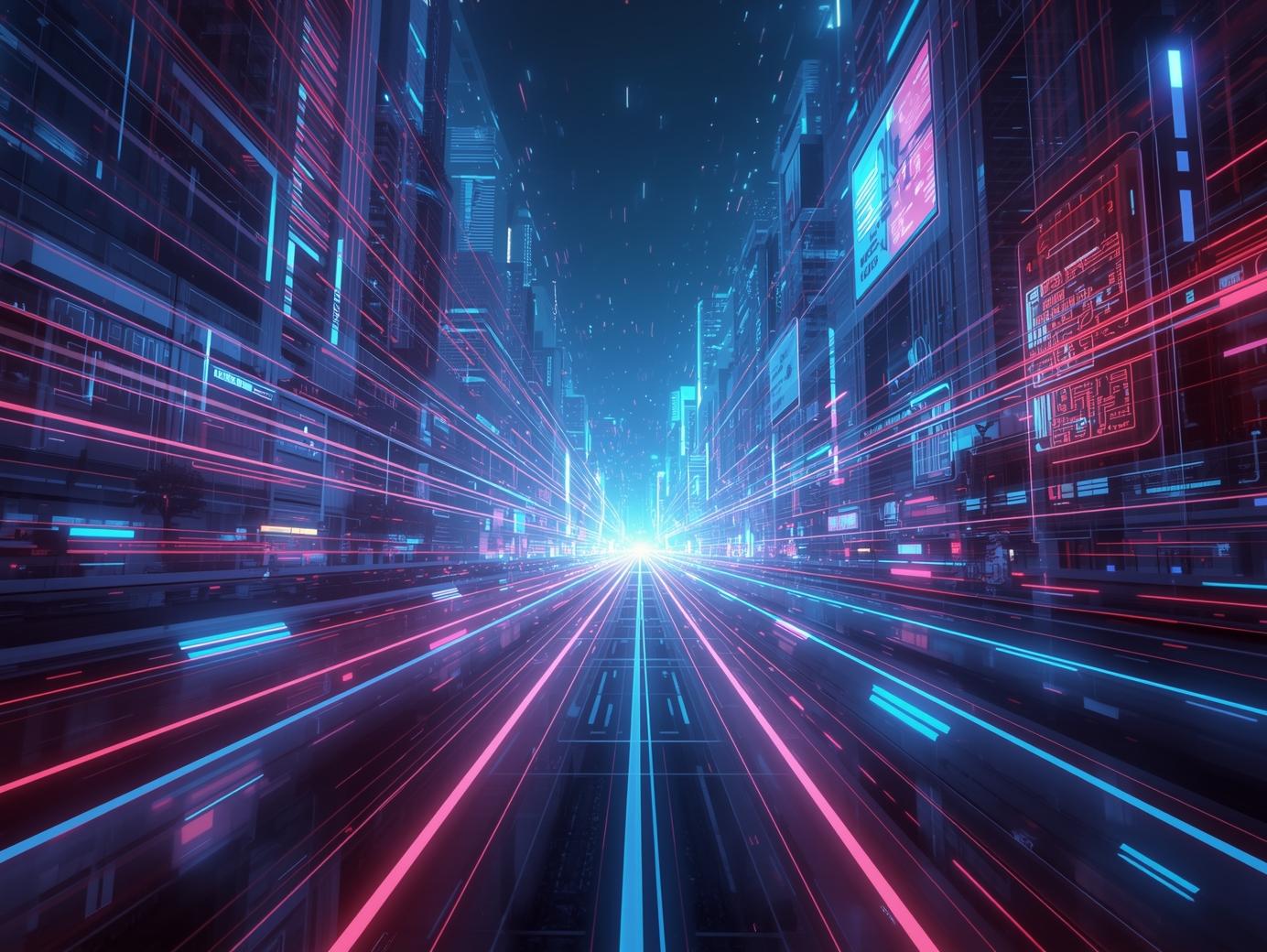The Future of Software Development: Trends to Watch in 2025

Introduction :
Technology is evolving at an unprecedented pace. In just a few years, the software industry has shifted from traditional development methods to automation, cloud-first approaches, and AI-powered innovations. The year 2025 marks a turning point, where businesses that embrace emerging technologies will gain a significant competitive edge, while those that resist may find themselves left behind.
From AI-driven coding assistants to low-code platforms and sustainable development practices, the future of software is being redefined before our eyes. At Tivora, we believe that understanding these trends is the first step to building solutions that last—not just for today, but for tomorrow.
1. Rise of AI & Automation in Coding
Artificial Intelligence has entered nearly every aspect of our lives, and software development is no exception. AI-powered tools like GitHub Copilot, Tabnine, and ChatGPT-based coding assistants are helping developers write cleaner, faster, and more secure code.
From AI-driven coding assistants to low-code platforms and sustainable development practices, the future of software is being redefined before our eyes. At Tivora, we believe that understanding these trends is the first step to building solutions that last—not just for today, but for tomorrow.
Instead of spending hours debugging or manually writing repetitive functions, developers can now use AI to:
Generate code snippets instantly
Predict and fix errors in real-time
Suggest optimized solutions
Automate testing and deployment
This shift doesn’t replace developers but enhances productivity, allowing them to focus on creativity, architecture, and solving complex business challenges.
2. Growth of Cloud-Native Applications
Cloud computing has already revolutionized the way businesses operate, but the next wave—cloud-native development is taking things further. Instead of simply moving existing apps to the cloud, developers are now building software directly designed for the cloud environment.
Benefits of cloud-native apps include:
Scalability – Applications can grow effortlessly with user demand.
Resilience – Built-in redundancy ensures uptime and reliability.
Flexibility – Rapid deployment of new features and updates.
Cost-efficiency – Pay only for what you use.
Technologies like Kubernetes, Docker, and serverless computing are leading the way. Businesses that adopt cloud-native strategies gain agility and stay competitive in an era of rapid change.
3. Importance of Cybersecurity by Design
With software touching every aspect of our lives, security is no longer an afterthought—it must be built in from day one.
In 2025, “cybersecurity by design” will be a fundamental principle. This means integrating encryption, authentication, compliance checks, and threat monitoring into every stage of software development.
Key practices include:
Zero Trust Architecture (ZTA) – Never trust, always verify
AI-driven threat detection – Identifying risks before they escalate
Privacy-first design – Protecting user data at every interaction
Compliance automation – Meeting industry standards (GDPR, HIPAA, etc.) effortlessly
At Tivora, we ensure that every solution is secure, reliable, and resilient against evolving cyber threats.
4. Cross-Platform Solutions Becoming the Norm
In the past, businesses had to choose: build for iOS, Android, or Web—often requiring separate development teams. Today, thanks to cross-platform frameworks like Flutter, React Native, and .NET MAUI, companies can build once and deploy everywhere.
By 2025, cross-platform solutions will dominate because they:
Reduce time-to-market
Cut development costs
Ensure consistent user experience across devices
Allow faster updates and maintenance
With smartphones, wearables, smart TVs, and IoT devices becoming part of daily life, businesses must adopt cross-platform strategies to stay relevant.
5. Sustainable Tech in Development Practices
Sustainability is no longer just a buzzword it’s a necessity. Software development consumes significant energy, from data centers powering applications to code efficiency impacting processing power.
Future-ready companies will embrace Green IT by:
Using energy-efficient cloud providers
Writing optimized, lightweight code
Reducing infrastructure waste with serverless technologies
Leveraging renewable-powered data centers
Sustainable practices not only help the planet but also reduce costs and appeal to eco-conscious customers.
Conclusion
The software development landscape in 2025 will be shaped by AI, cloud-native architectures, built-in security, cross-platform solutions, and sustainable practices. Businesses that adapt will unlock new levels of efficiency, customer satisfaction, and growth.
At Tivora, we are committed to adopting future-ready technologies and delivering solutions that don’t just meet today’s needs but also tomorrow’s challenges. Whether it’s building intelligent applications, migrating to the cloud, or creating secure, scalable systems, Tivora is your partner in navigating the future of software.
The future isn’t coming it’s already here. Let’s build it together.